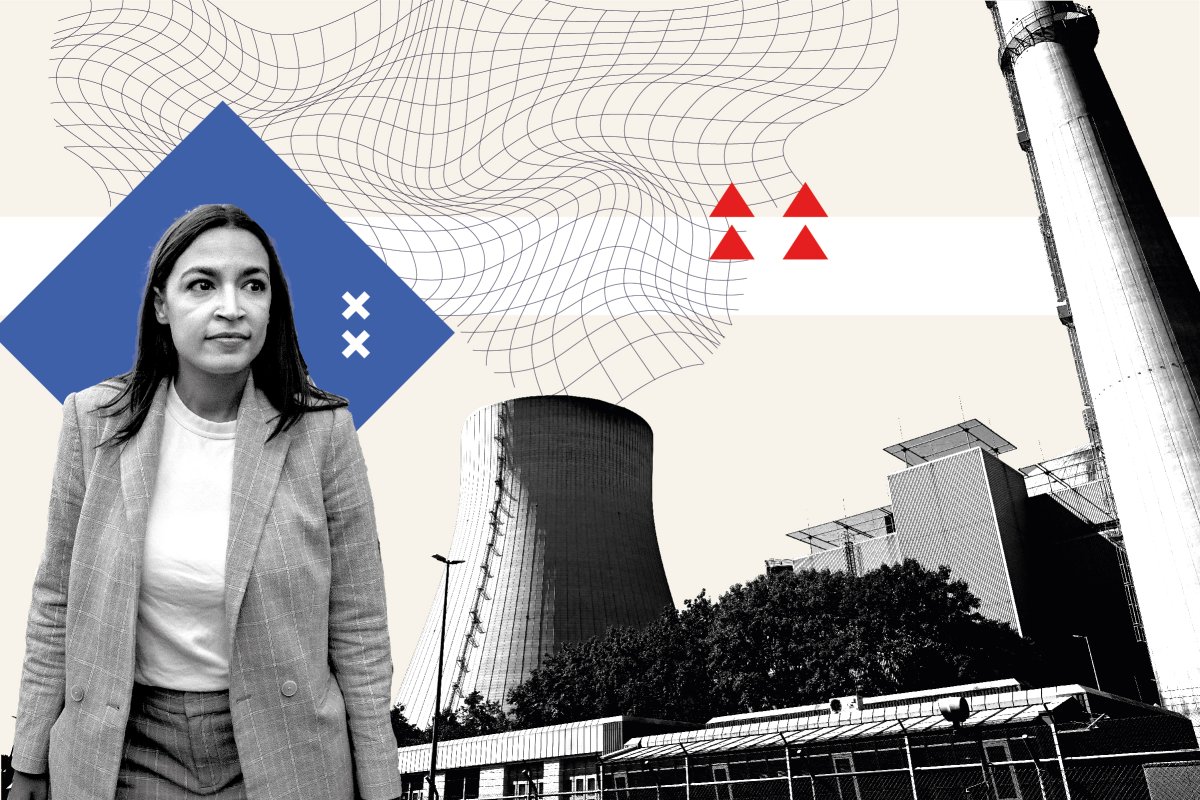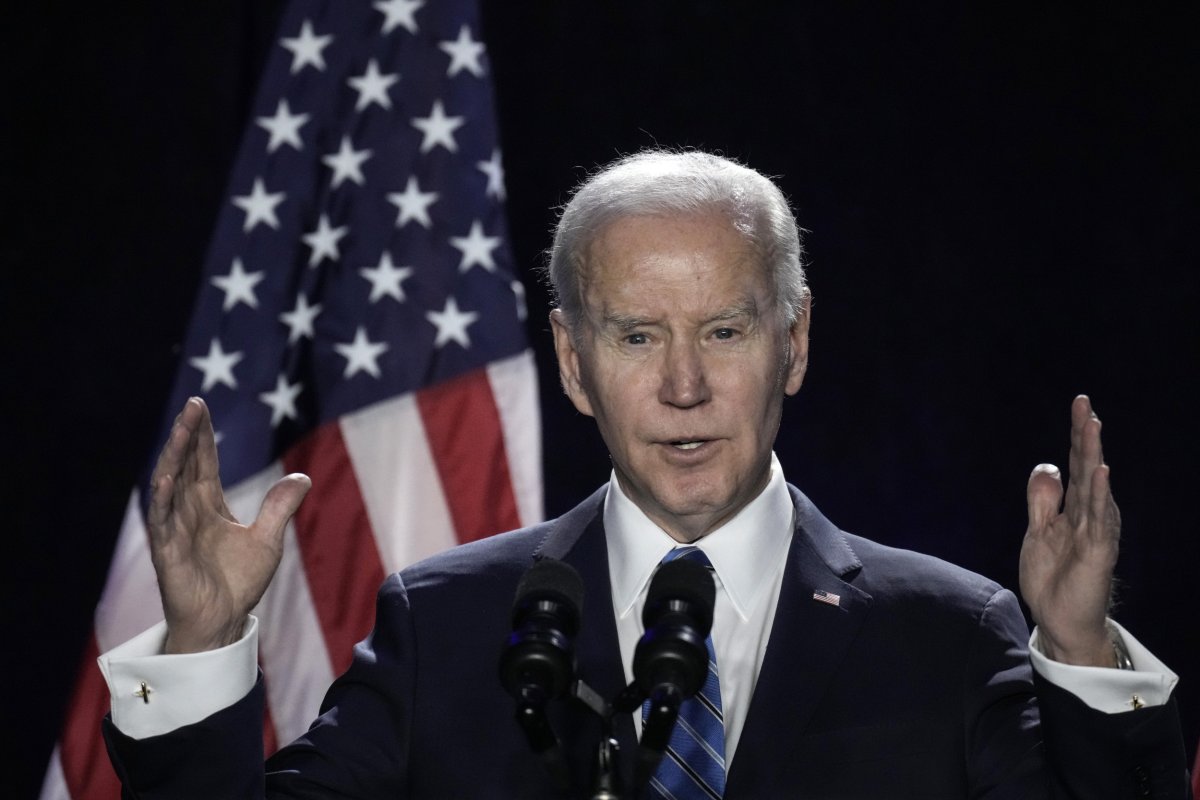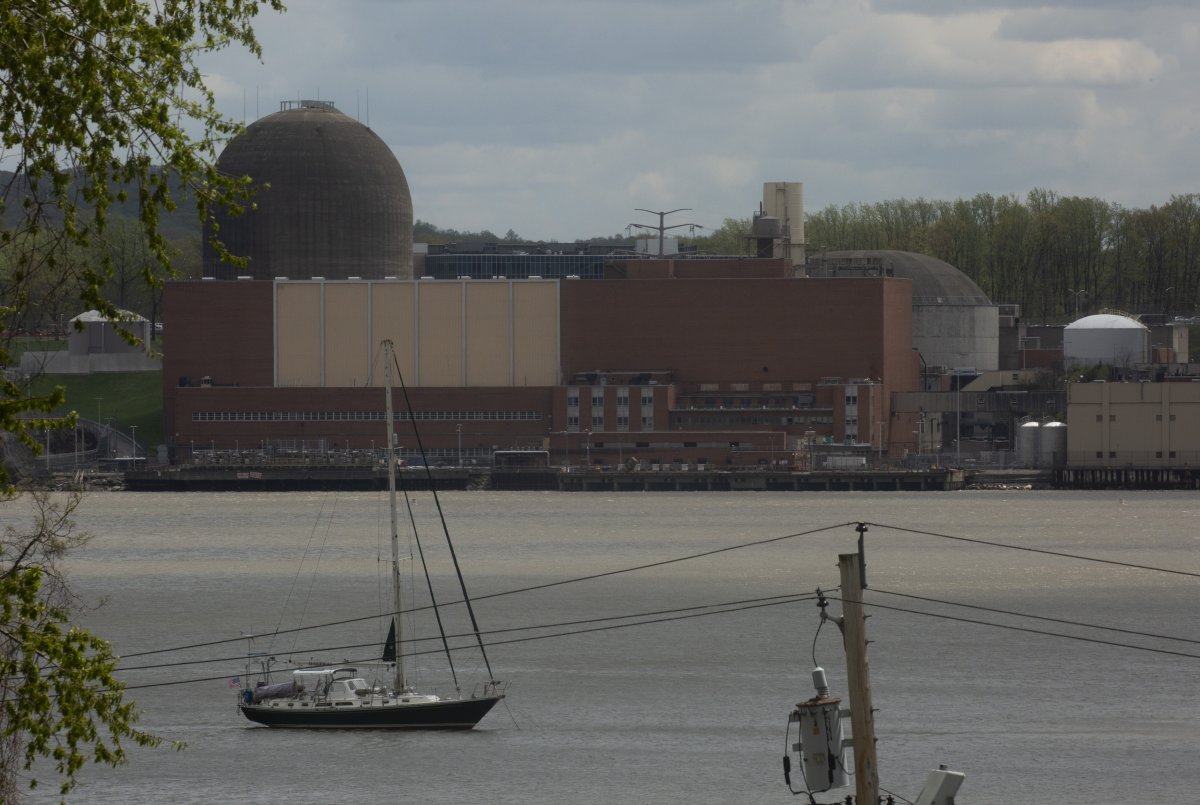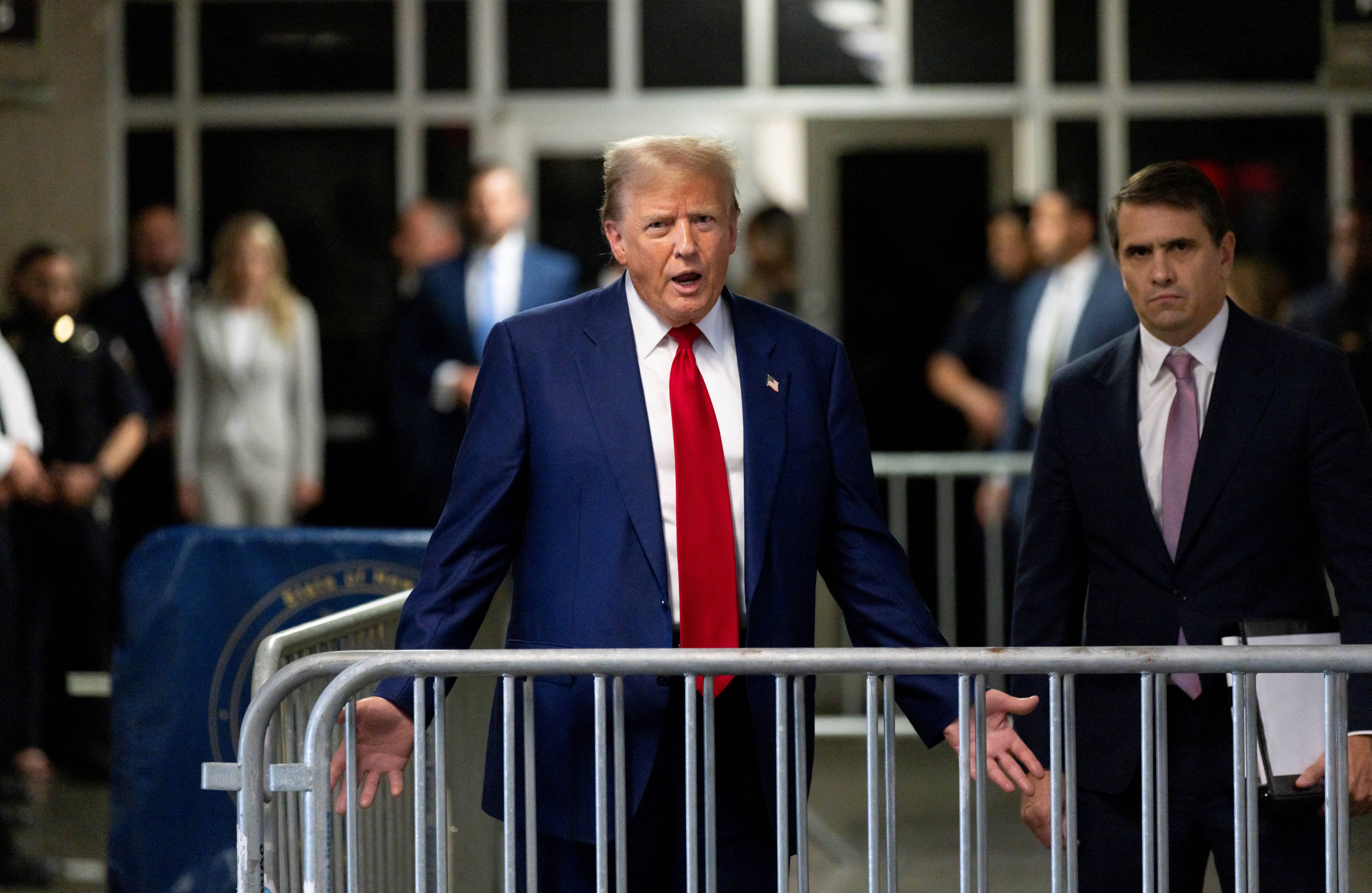- A recent trip by Alexandria Ocasio-Cortez has sparked a conversation about a potential shift in the left's stance on nuclear energy.
- Experts believe this may be due to a more urgent focus on climate change, as well as the younger generation's priorities replacing those of the older one.
- While nuclear energy is seen as a zero-emission option to plug the gap of gas and coal, it is unclear if it can meet America's future electricity needs.
- So, is the left coming to terms with nuclear energy just as it's going out of date?
On February 21, Alexandria Ocasio-Cortez, the congresswoman representing New York, visited Japan's Fukushima nuclear power plant, the site of a triple meltdown and arguably one of the world's worst nuclear disasters. She walked out of the radioactive site with the equivalent dosage of two chest x-rays.
During the visit, she documented the trip to her 8.6 million Instagram followers, explaining in calm detail what she had experienced and answering their questions.
"After the explosion, Japan's energy sources went from 30-40 percent nuclear to almost none," Ocasio-Cortez said. "The flipside to that is the major drop in nuclear energy production has been made up in increased use of coal and fossil fuels, whose carbon emissions accelerate climate change."
While she said her intention was to "neither fear monger nor sugarcoat" what happened, noting that nuclear energy is "a very complex, nuanced, and often controversial topic in certain circumstances," her appraisal of the fuel that provides 19 percent of Americans' electricity seemed almost warm.

Experts in environmental policy think that may be the case, or at least that it doesn't reflect the deep skepticism many on the left have historically held towards nuclear power. They suggest it's one example of a slow softening of the left in the U.S. toward nuclear energy, as the issue of climate change becomes more acute and the younger generation's priorities take over from the old.
"I think she's for nuclear; I'm not trying to say she expressed that fully in those Instagram posts," Mark Nelson, founder of consultancy Radiant Energy and a self-described nuclear power "radical," told Newsweek.
While he didn't know whether Ocasio-Cortez's recent trip represented a softening of her stance, "what I can say is she took the risk of sharing the words and images that she did with the audience we know she has," Nelson said.
He noted that she was someone who previously "spoke out as OK with the loss of the most important power plant in her area, Indian Point," which ceased operations in 2021—something Nelson describes as "a complete disaster for energy security" in New York, and personally told her when they met briefly at the COP26 summit he hoped it would be the last.
"There's some shift here. She's sounding very pro-nuclear at the moment, in those [posts]," said Roger Karapin, a professor of environmental policy at the City University of New York.
However, he added: "She has not really been anti-nuclear. Back in 2019, when she rolled out the Green New Deal, she had some ambivalence and she clarified her position, it was basically open to nuclear—which is really not far from Biden's position when he ran in 2020."
As "the writing is on the walls that Biden will be the nominee [in 2024] and she's not going to want to endorse somebody else," Karapin said, "maybe she's preparing her base for that a little bit."
The Problem of Nuclear Waste
Two days after her trip to Fukushima—a visit Nelson depicts as showing "a level of inquisitiveness that you basically never see in people who are against nuclear"—on February 23, responding to a question about France's expansive nuclear energy system, she noted that France recycles its waste, "increasing the efficiency of their systems and reducing the overall amount of radioactive waste to deal with," something the U.S. doesn't currently do.
"Recycling is a much more tricky issue than she makes it out to be, which is another sign for me," Nelson said. "If she's willing to make a good/bad, very simplistic determination on fuel recycling, and she decides it's good, that is a stance that would have been seen as perhaps radically pro-nuclear in previous eras."
The U.S. currently stores much of its nuclear waste on-site, owing to a long-term political battle over a disposal site in Yucca Mountain, Nevada. Recycling nuclear waste might appeal to environmentalists concerned about the effects of man-made radioactive material.
But for the U.S. to start recycling, it would take a "very dramatic departure" from how its nuclear plants are currently built, according to Barry Rabe, a professor of environmental political science at the University of Michigan. "The French system involves reactors that the U.S. generally does not pursue because of concerns about production of weapons-grade nuclear material," he said.

Lauren Hitt, director of communications for the congresswoman, said the trip to Japan was "part of a congressional delegation designed to strengthen trilateral relations and gather information on a range of topics, including but certainly not limited to nuclear energy.
"We don't have any changes in the Congresswoman's policy posture re[garding] nuclear to announce as of now," she said.
How the Left Changed Its Tune
Whether or not Ocasio-Cortez is changing her tune on atomic energy, there has been a shift more broadly on the left. Democrat and Democrat-leaning Americans have moved from being 59 percent opposed and 38 percent in favor of expanding the country's nuclear capacity in 2016, to 55 percent opposed and 43 percent in favor, according to surveys by the Pew Research Center.
"There's been a long, slow and partial shift toward grudging acceptance for some or all for nuclear power for people left of center," Karapin said.
"I see this as part of a generational change: the older voters, older activists, for them nuclear power was the key environmental issue back in the 70s," he adds, noting nuclear disasters in living memory, such as Three Mile Island and Chernobyl in the 1980s. "For younger cohorts, climate change is the number one issue."
"The center of Democratic politics, especially at the national level, 10-15 years ago was not pro-nuclear," Nelson said. "John Kerry was an outspoken opponent of nuclear. Now in his job as climate envoy he tells all sorts of groups, 'nuclear's important; we have to have it as part of the clean energy transition.'"
He believes that this is driven by a recognition that tackling climate change requires moving away from fossil fuels quicker than renewable energy sources can accommodate, but said this is the "minimum view."

"Nuclear is best at providing electricity at the moment," Nelson said, noting that a key part of Biden's push towards a green economy is premised on electrifying transit while decarbonizing electricity production.
Nuclear energy, therefore, could serve as a zero-emission bridging fuel between gas and renewables. "There's this idea that nuclear power is a barrier to building out renewables," Karapin said. "But I think the other way of looking at it—from a more pragmatic point of view—is that nuclear power is a substitute for the base load capacity provided by natural gas and coal."
But natural gas currently produces more than 38 percent of America's electricity, official figures show, with wind and solar power combined producing just 12 percent. "That's a huge, huge transition," Rabe said, adding: "So I think in a lot of ways that does raise the issue of nuclear."
Will Nuclear Fission Fizzle Out?
While all three experts note that nuclear power lacks the intermittency issues of wind and solar, Rabe remains skeptical as to whether it alone could plug the gap gas and coal would leave.
"I'm just looking at the numbers: you would need to triple existing nuclear capacity to replace gas and maintain existing nuclear [production]," he said. "That would be a massive, massive build-out."
Rabe also remains unsure about its potential as a bridging fuel, which he says would still require increasing production. "The timelines for that are significant," he said. "I can't imagine you can start building major nuclear power plants quickly to serve as a bridge or transition role."
If nuclear power can't meet America's future electricity needs, it will need to solve the issue of intermittency of wind and solar power to go net zero, something which Karapin said "still hasn't been addressed adequately."
"Honestly, I don't think the U.S. is going to get there by 2050; I think we're really looking at 2060 or 2070," he added, but he believes creating a means of storing renewable energy on a large scale would make hitting America's net zero target possible.
"The nuclear fission industry is a declining industry, and the question is just how rapidly it is going to decline," Karapin said. "It's a bridge fuel like natural gas; it doesn't have a long-term future in terms of expansion. It might have a long-term future in terms of phasing out slowly; that might be true for natural gas too."
As such, the left might be coming to terms with nuclear energy at the same time it's going out of date, rather than it playing a starring role in America's green energy revolution. But, as Nelson suggests, it may also be a tacit acceptance that skepticism towards nuclear power is waning, and that the alternatives face their own steep hurdles.
Uncommon Knowledge
Newsweek is committed to challenging conventional wisdom and finding connections in the search for common ground.
Newsweek is committed to challenging conventional wisdom and finding connections in the search for common ground.
About the writer
Aleks Phillips is a Newsweek U.S. News Reporter based in London. His focus is on U.S. politics and the environment. ... Read more
To read how Newsweek uses AI as a newsroom tool, Click here.








